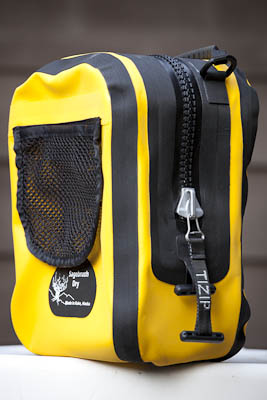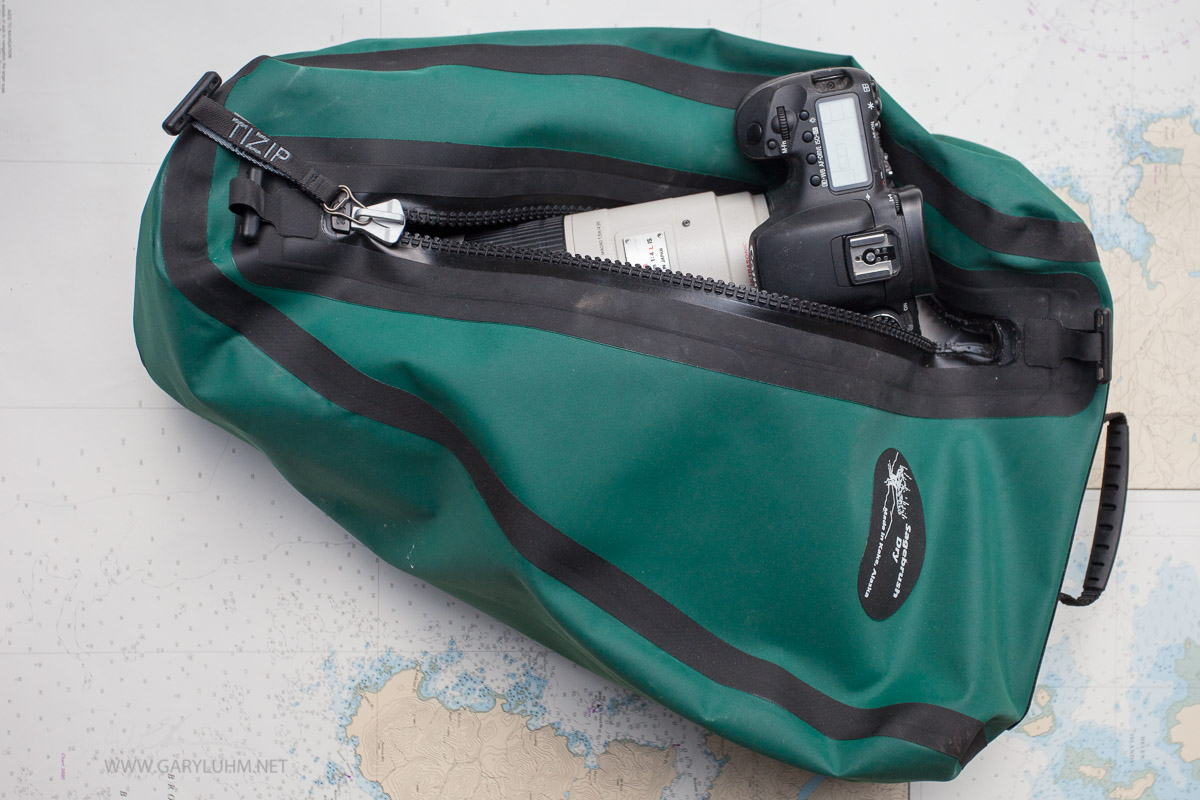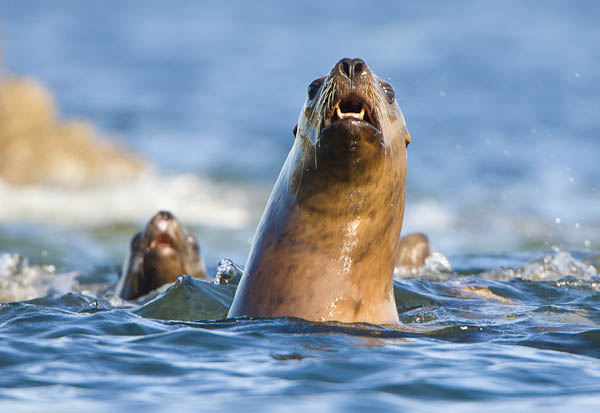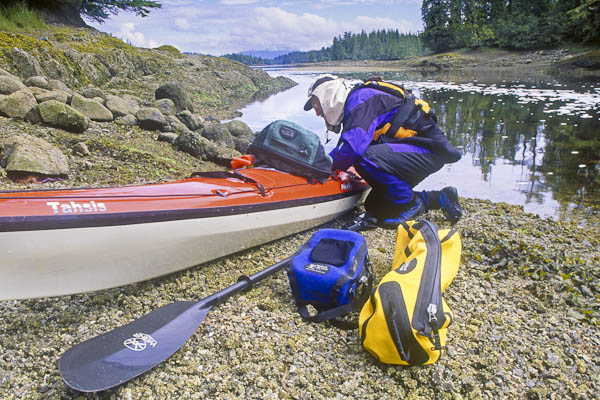Sagebrush Dry Cam-Dry (blue), Sure-dry Hip Pack (green), and big custom bag.
Note: This is an update of a 2011 post. Gary Luhm has used Sagebrush Dry gear since 2001.
Probably my most frequently asked question is “How do you keep your camera dry while kayaking”. In the 90’s I had no pat answer for that, except for the gear I stowed in a Pelican dry box, and that gear was inaccessible while on the water, packed away in the stern hatch. I packed a desiccant—like the little packets that come with electronic equipment—to combat moisture. For active shooting on the water, I used roll-up closure dry bags. They worked well as long as I didn’t have much water in the cockpit, or worse, ended up swimming. In those situations, roll-up closures leak a surprising amounts of water. Today I still use the Pelican to safely stow photo gear, but for active photography on the water and easier stowage, my waterproof answer is Sagebrush Dry.


Sagebrush Dry moved their operation from Dillon, Montana to Kake, Alaska, a few years ago. Their focus is quality. They once made waterproof gear on contract for Patagonia until Patagonia took it off-shore. The machines to make high-quality, waterproof camera bags and other waterproof gear stayed with Sagebrush in America. Welcome to direct, hands-on experience in rain-drenched Kake. Many of their products waterproof hunting gear.

I often kayak with two camera dry bags in the cockpit: one contains camera with a wide-angle zoom, the other houses a second camera with a telephoto zoom or fixed focal-length tele. A full-frame camera with wide-zoom fits easily in the large-size Sagebrush “Cam-Dry” (10”x 7.5” x 4.5”). I put my most-often-used Sony A6700 with 100-400mm GM in the 11″ to 5.5″ W x 19″ H x 7″ Sagebrush Nose Bag. I transport my 500mm f4 in a large Twin Center bag (a medium would work as well) stowed in a hatch with the lens hood reversed. Occasionally, I shoot the 500 f4 from the cockpit, for which I had a custom Sagebrush bag made so I could stow the camera with the long lens hood attached. A stretched version of their large “Twin-Center” bag would get you close to the same thing.
I see several keys to the utility of Sagebrush Dry waterproof bags. They use a tough, urethane/nylon material, similar to the material Feathercraft uses for their folding kayak hulls. The bag seams are re-enforced and radio-welded, not taped. Taped seams may last a few seasons. Radio-welding seems to last for a decade or more. Finally, a TIZIP waterproof zipper is employed. Recent bags use an innovative new zipper—TIZIP MasterSeal 10. These are a preferred zipper for both kayaker and diver drysuits.
I tested my bags by adding 10 lbs. of weight, and submersing them 16” deep in a bucket for an hour. No air bubbles rose from the bags, and the bag interior was bone dry after tests.
The new TIZIP zipper is flexible and in my experience resists splitting. It employs handles to open and close. Like all waterproof zippers I’m aware of, it also needs periodic lubrication which Sagebrush supplies and can also be purchased from dive shops.

The Cam-Dry comes with a shoulder carry strap, carry handle, and belt loop. Inside, protective padding is velcroed to the skin. Photographers looking for a bigger, padded bag should consider the Sagebrush “Hip and Deck”. For a deck bag, though, I like the smaller profile of the unpadded “Sure-Dry Hip Pack”. In use on the foredeck, I hook the belt strap under bungie. The “Hip Pack” also conveniently doubles as a waterproof belt pack, useful in the rainy Northwest or for fording streams, etc. In general, Sagebrush Dry bags are safe like a dry box and nearly as robust, but without the rigid shell and the higher risk when opened. They’ll keep your camera dry while it’s sloshing about in the cockpit on a worst-case, all-day, storm-paddle.

Disclosure: Years ago, Sagebrush gave me several of their dry bags to test (and keep).
Sagebrush Dry makes dry storage bags, belt packs, padded deck bags, fishing, hunting and other waterproof gear from the same materials and technology (discussed above). They can be reached at https://sagebrushdry.com/ or 888-936-5012.
Gary
